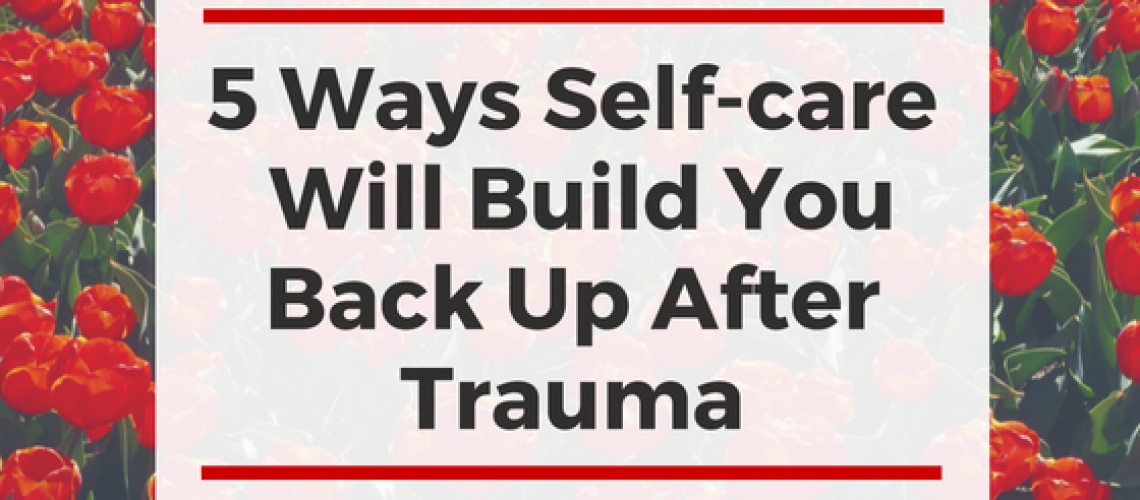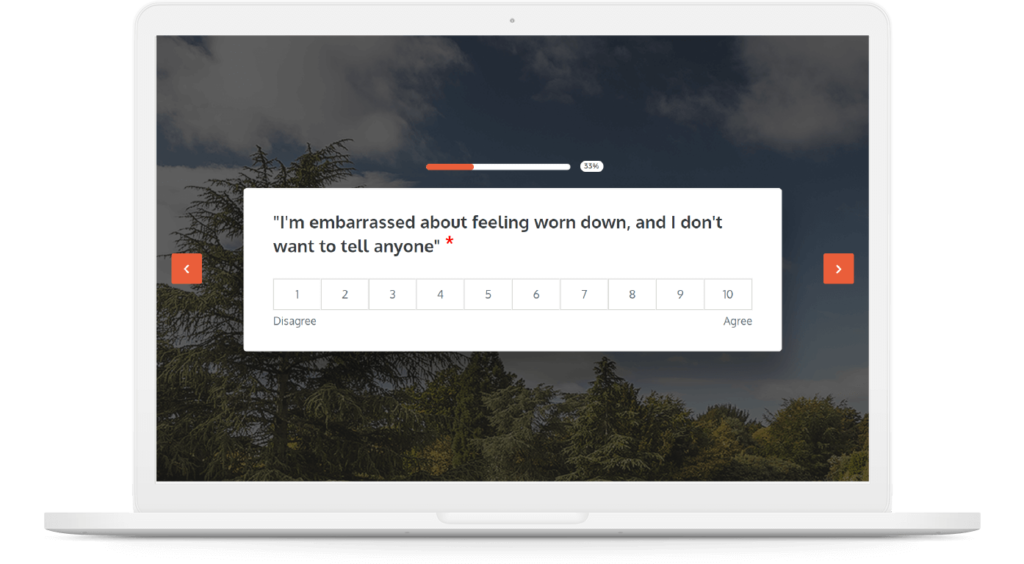Practising self-care and self-compassion are the most powerful tools you have in your recovery from trauma.
Trauma, by the way, can come in many simple forms – a divorce, loss of your loved one, an accident, an attack. You may become a storm of fear, anxiety, and neurological disarray, which leaves you struggling to function.
Here’s how incorporating self-care into your life will help you, or your loved ones recover from a traumatic breakdown.
If we look at compassion, I think it is important to reiterate to yourself, “What a shame that happened” or “It’s a shame that happened to me”, really allowing yourself to be the victim of something so that you can move through it.
My feeling is that for optimum performance, you require optimum compassion for yourself, to embrace the recovery and healing.
If you don’t start with a compassion for yourself, you’ll never really get to optimum performance, because you’ll be expending energy, suppressing the symptoms, feeling badly about yourself, feeling the shame, which is energy being used up every single day.
You will never be able to get to the point of being the success and the recovered person that you would like to be. Another way of looking at it is looking at the analogy of the wall of water.
If you imagine a wall of water, or if you dive into a swimming pool and you don’t get it right, it really hurts. If you smack water, it actually hurts. If you hit a wall of water, it hurts, but if you decide you’re going to swim through it, it doesn’t hurt so much.
As depicted by the image below. Recovery from trauma, if you decide to ‘swim’ with the process, is not going to be easy, but it won’t hurt as much as punching it and smacking your head against it.
If you keep hitting the wall of water it will remain and hurt but if you decide one day to swim through the wall of water, it’s a much easier journey to get to the other side and doesn’t hurt half as much.
1) Throw away the big stick
People tend to beat themselves up about what’s happened, feeling that they made the wrong decision and that’s what made it happen.
If you manage to embrace compassion for yourself and compassion for what you’ve been through, you will naturally have thrown away your big stick that you beat yourself up with. It can feel such a familiar big stick, and if you feel like picking it up again just ask yourself how it’s going to help you.
Using compassion for what you’ve been through will help minimise the size of the stick and eventually eradicate it. When you finally put the big stick down you will find your recovery accelerates dramatically.
2) Eat and drink well
Eating and drinking as well as you can manage is all part of your self-care plan. Even if this means having the tiniest amount of food every hour, you will find it helps you feel like you’re doing something to put yourself on the mend. Regular sips of water to keep you hydrated, is very important.
Morsels of nutritious food, that don’t over face you but give you the vitamins and minerals you need is very important. Taking some advice from a nutritional expert can help too. Look at reputable online health food stores for vitamin and mineral supplements.
These initial steps back to healthy eating will give your body and mind the best chance to withstand the rigours of the symptom onslaught of traumatic breakdown.
3) Be conscious of self-medicating
Being conscious, and noticing what you are doing to dampen down the tumultuous emotion and thoughts that are zooming round your body and mind is helpful.
It can be invaluable for you to talk this over with a doctor, to discuss at length whether a course of prescribed medication would suit you better.
Medication in the short term can be necessary and helpful in the early stages of traumatic breakdown. Having a GP, naturopath, homeopath, kinesiologist, for example support you and monitor your needs is often crucial in order to feel able to function on a day-to-day basis.
Many people are understandably afraid to take the support of medication, but it is a much more refined industry these days and the priority in the early stages is to get yourself feeling calmer and safer.
We often turn to readily available medications like alcohol; drugs; caffeine which often can consequently give us another predicament to overcome.
In terms of doing any kind of therapeutic work to help overcome traumatic breakdown or traumatic experience it can be done to some extent alongside prescribed medication. It is however phenomenally difficult if not impossible to enter into therapeutic work when self-medicating (i.e. under the influence).
It is a perfectly natural response to want and need to dampen overwhelming sensations within the mind and body. It does however often cause tremendous feelings of guilt shame and embarrassment, and so once again we come full circle to compassion.
Feeling sorry for what you’ve been through and having compassion for the steps that you’ve taken to manage your overwhelming symptoms without judgement helps. There are many specialist resources that can help you if you feel your self-medicating is controlling you.
4) Get rest if not sleep
It can be incredibly difficult to relax enough, to settle the mind enough to sleep. Obviously, sleep is a crucial element to being able to have respite, and to restore our energy and resources. This becomes a cruel vicious circle in post trauma reaction, when we need sleep more than ever it eludes us.
Finding ways to get rest, if not sleep, are an important part of self-care. Things like taking a bath with lavender oil (natural relaxant), and clary sage oil (natural anti-depressant) going to bed for power naps, listening to music or to audio books in order to provide some respite.
It is sometimes those simple attempts to rest and not to force sleep upon us when we can’t sleep that makes the difference. You do eventually start to sleep properly again. The greatest support to you when you are in the tricky times of not being able to sleep is to know that it won’t last.
Once you can read again you can purposefully take rest times and catch up on reading you intended to do/or have wanted to do. As it all gets easier and you’re on the upward spiral you will be able to watch old films, new films, even TV again!
Basically, the best remedy to not being able to sleep is to not, or try not, to worry about it. It gets better! If you struggle to sleep at all do speak to your GP, they can sometimes support you with short courses of medication that will ‘interrupt’ the non-sleeping pattern.
5) Get the help you deserve for a speedy recovery
Have compassion for yourself, which probably comes first, and then you feel like you can at least look after yourself and eat better and get some sleep. If we don’t make these initial steps, it will prolong recovery. It doesn’t make it impossible; it just makes it take longer.
What we’re looking for, I would say, is an upward spiral. When we catch ourselves hurting ourselves or not looking after ourselves, we give ourselves a little bit more to recover from. Again, what I would say is to use this as information to gently say, “Okay, I hurt myself with that,” or “I’m feeling badly that this happened,” so that you can go in an upward spiral to full recovery.
It’s probably a good time to share that what’s helpful for everybody who’s been through catastrophic events, is to remember that it is the normal course of things to feel frightened, frustrated and worried about their recovery.
I say this in order to facilitate people understanding the process of recovery without judgement without the punitive overtone that can often come as part of post-traumatic breakdown.
In my book, How To Smile Again, I talk about the power of noticing. To notice something in this context means to take a look at it, in a sense, without judgement. To notice without judgement means gathering information that can help you with your journey. This is easier said than done.
However, it is a powerful way to embark on the journey of recovery when we cannot see the ‘wood for the trees’ or ‘the healing amongst the agony’.
The other thing is, just about everybody that’s ever been through a traumatic breakdown will come to the point where they can’t do this alone, and every single person needs a leg up in life. Even if it’s just a friend or family member or whoever you can rely on, it helps just to be not alone.
I think that the crucial thing to know is if we suppress it now, if we start suppressing it and get used to doing that, then untreated, suppressed trauma leads to depression.
So, I would like to acknowledge that it’s really, really hard to do this alone. It’s almost impossible to do this alone because our ability to decipher our path out of the complexity of post-traumatic breakdown is hindered if not obliterated.
Things to remember about Self care
- Work towards having compassion for you, it’s the help you need.
- Feel sorry for what you’ve been through, don’t worry about self-pity, it’s unlikely!
- Throw away the big stick, if you haven’t already.
- Eat and drink as well as you can manage. Good nutrition fuels the body & mind.
- Take a shower; put on make-up; have a shave.
- Be conscious of self-medicating; seek support if necessary.
- Get rest if not sleep, and try not to worry sleepless nights won’t last.
- Draw and write.
- Get the help you deserve for a speedy recovery, don’t suffer longer than you need.
- Remember you will recover.
If you’d like to read about more about recovery from trauma or breakdown, you can buy your own copy of my new book ‘Smile Again’ here or sign up for my latest updates at the bottom of this page.




